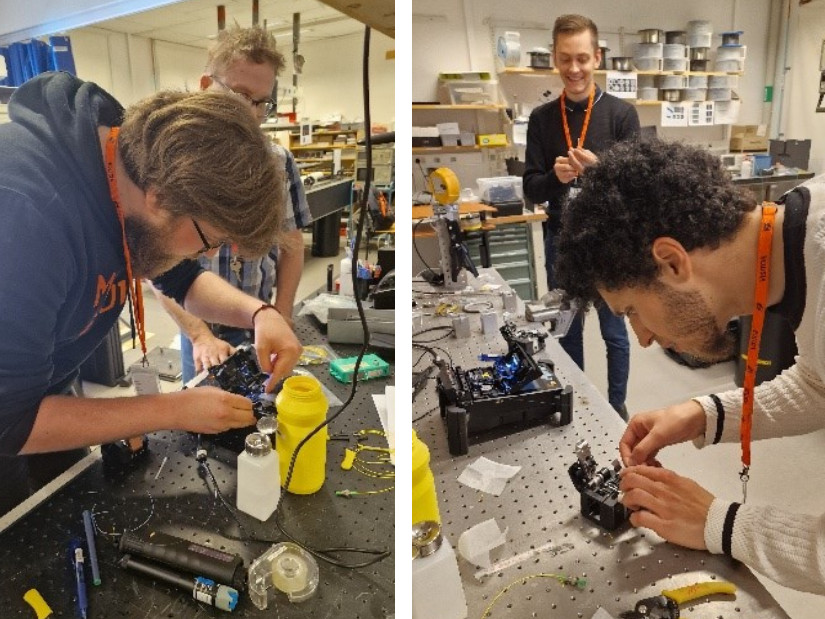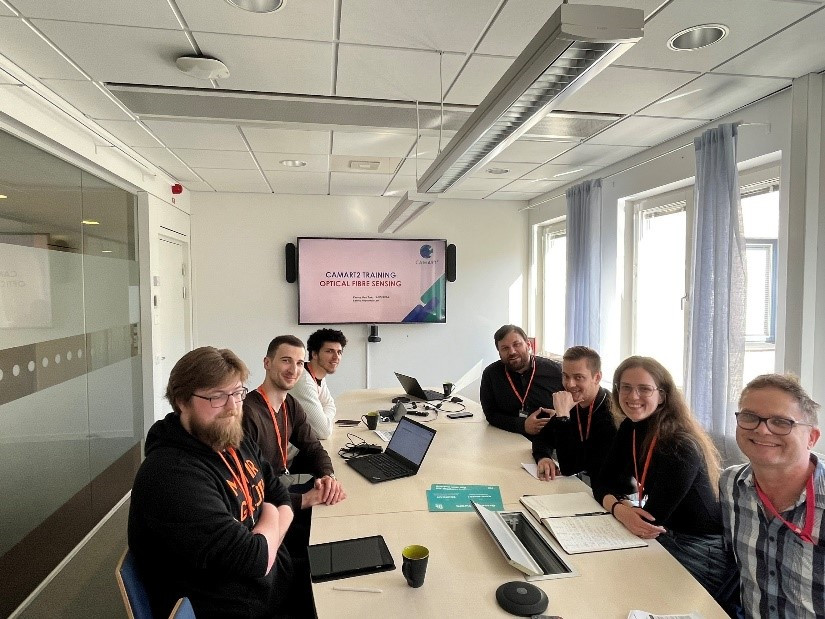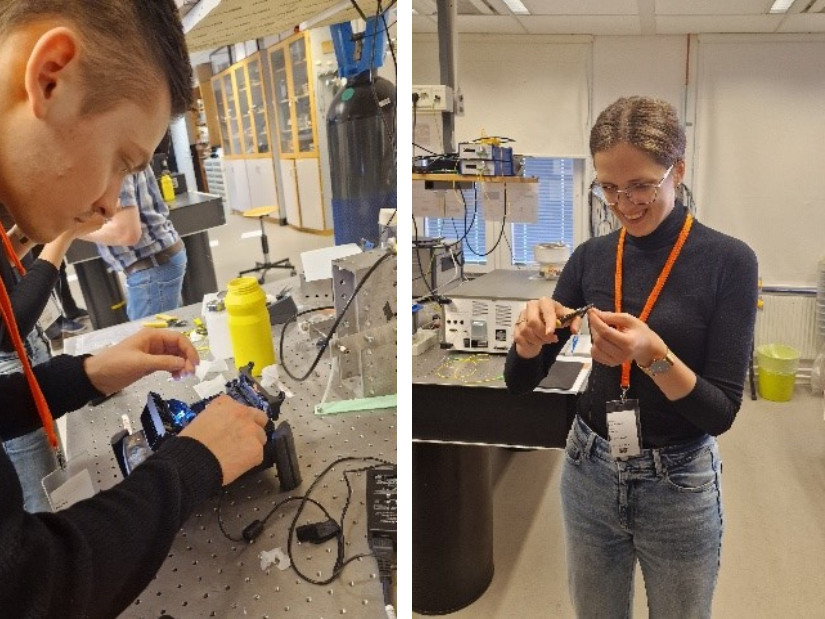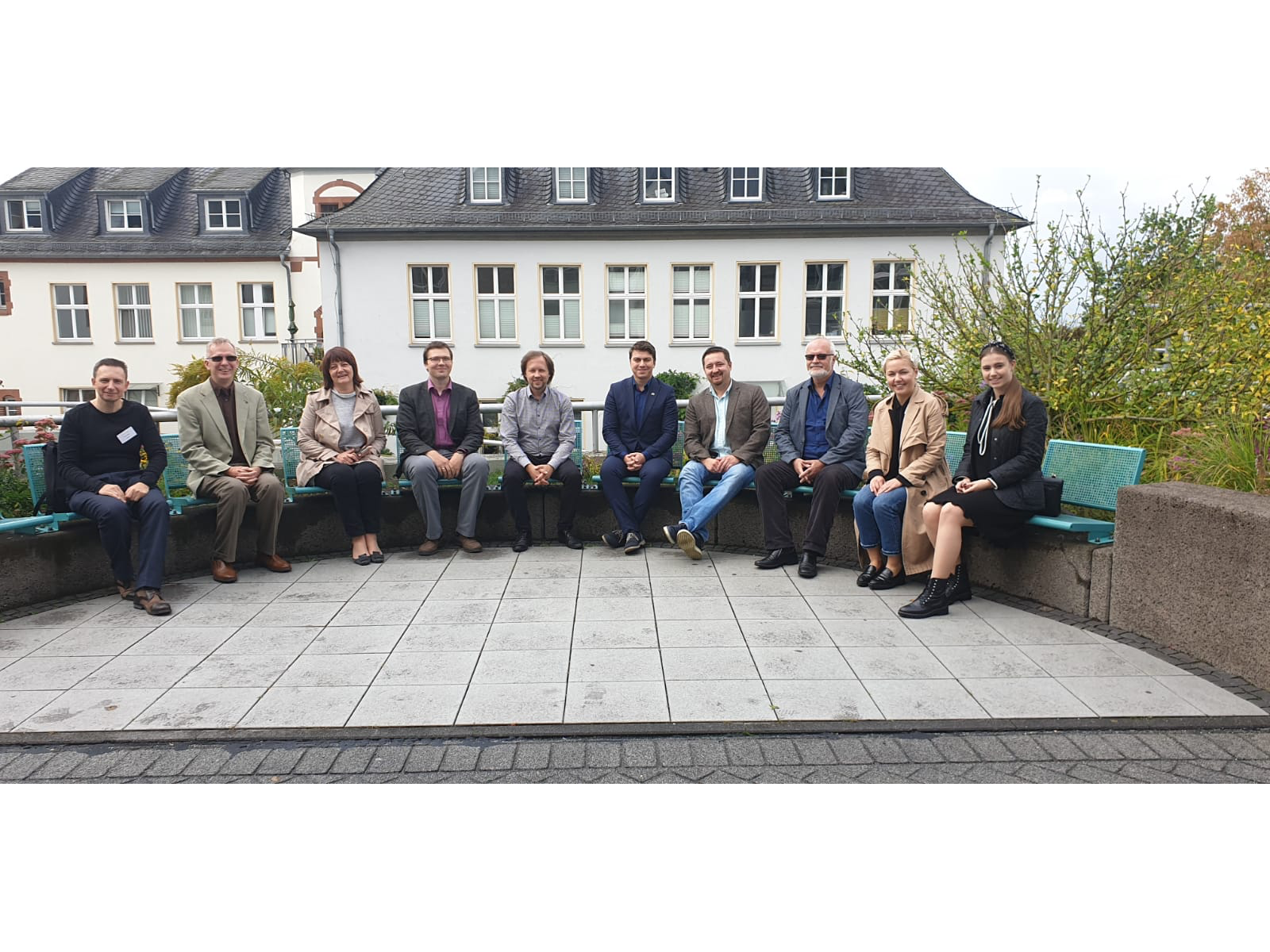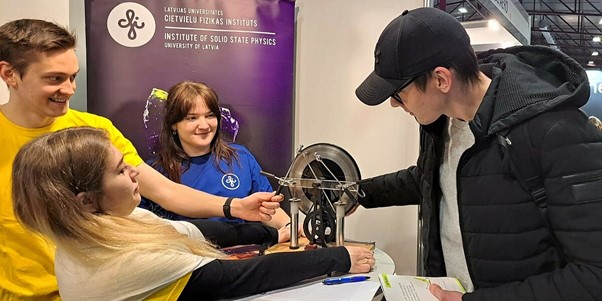On May 16-17, a group of doctoral students from the ISSP UL had the opportunity to learn about producing and adapting optical fibers for sensor applications during a two-day training organized and taking place at RISE – CAMART2 consortium partner. Mentors delivered a series of theoretical lectures covering topics such as light propagation in standard and hollow optical fibers, the functioning of FBG sensors for temperature and pressure measurements, and the different classes and advantages of photonic crystal fibers compared to traditional solid core fibers.
The presentations also emphasized how the fiber coating can enable specific measurements and address issues related to light loss. Furthermore, the students gained hands-on experience in fiber preparation, cutting, splicing, and filling. They also explored the various applications of standard and special fiber sensors in fields like spectroscopy, microfluidics, temperature and pressure control, vibration analysis, and X-ray detection.
Overall, this training provided the students with valuable insights and practical skills in optical fiber technology for sensor applications that will be used in their work at the ISSP UL.

